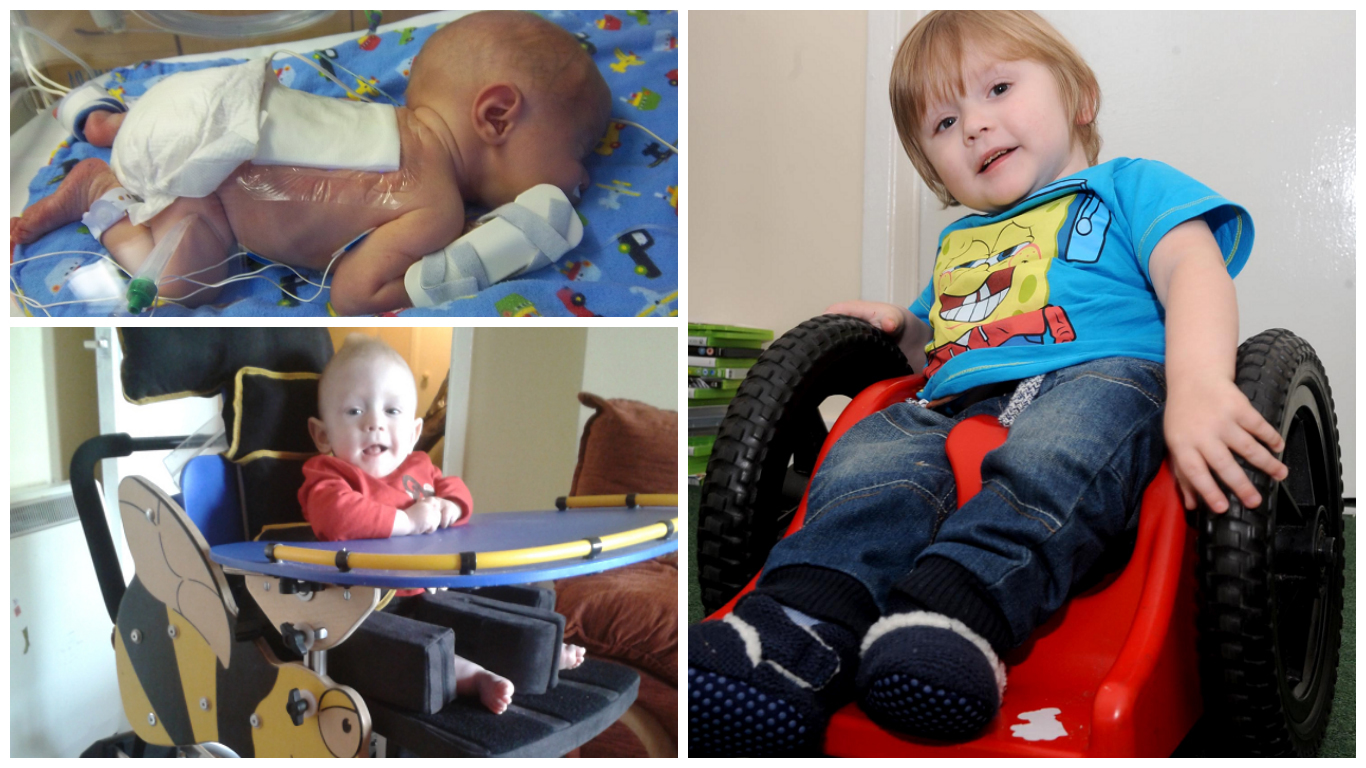When little Baxter Dick was born with a rare, debilitating condition that left him paralysed from the waist down, doctors told his parents that their newborn would have just months to live.
The tiny baby had come into the world two-and-a-half weeks early – born by a Caesarian section – and he was suffering from spina bifida, scoliosis and hydrocephalus.
But despite medics’s predictions, Baxter’s parents, Ailsa and James Dick, from Aberdeen, yesterday celebrated his fourth birthday – and said their little boy had achieved things they had once only dreamed of.
By coincidence, it was also the same day as the 50th anniversary of the charity Spina Bifida Hyrocephalus Scotland (SBH Scotland), which Mr and Mrs Dick said has offered them invaluable support over the years.
Founded in 1965 by a group of Scottish parents with children suffering from spina bifida or hydrocephalus, SBH Scotland has helped more than 3,500 children, young people and adults with the conditions over its half century of charity work.
And it was thanks to the charity that Baxter, who until recently had been confined to specialised wheelchairs, was able to take his very first steps.
Thanks to a unique mobility harness called an ‘Upsee’, which attaches his legs to his mother’s legs, he has experienced what it is like to move on his own two feet.
“Baxter was so delighted when he took his first steps that he did his happy dance,” said his mother.
“It’s a huge moment for any parent to see their child take this first steps.
“The doctors told us that Baxter would spend the rest of his life in a wheelchair because of his paralysis and we know that walking on his own would never be an option.We get amazing support from SBH Scotland.
“We also have a great network of friends who support us. One of my friends Jules launched a ‘Help Baxter’ social media campaign that has been really successful. We are overwhelmed by all the love and support we’ve received from people.”
Deborah Roe, the charity’s director of fundraising, said it depended on the goodwill of the public to keep the service going.
“We have to raise over £1million every year to run our vital support services and projects,” she said.
“Our many achievements are a direct result of the generous support from friends, past and present – friends who share our vision of enabling all those with spina bifida and/or hydrocephalus to live the best life possible.”
For more details on the work of SBH Scotland visit www.sbhscotland.org
